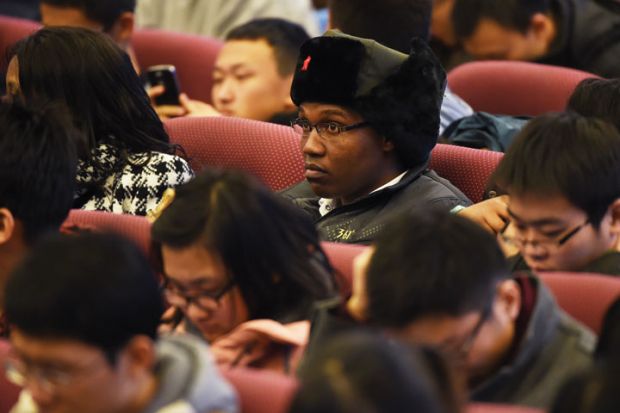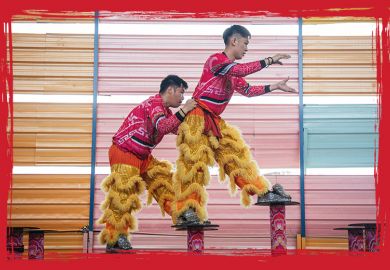African students in China value their university experiences but face racism and isolation in wider society, a study suggests.
Beijing has identified recruiting African students as a priority as it builds a diplomatic soft power push into the continent, with 81,562 Africans studying in mainland China in 2018 – equivalent to 16 per cent of all international students in the country. China is now the second most popular destination for globally mobile African students, with enrolment multiplying 20-fold compared with a decade ago, putting the country ahead of the US and the UK.
This number is set only to increase, with the Chinese government pledging in 2018 to offer 50,000 scholarships to African students over three years.
However, to date there have been very few studies of the experience of African students in China. Benjamin Mulvey, a PhD student at the Education University of Hong Kong, interviewed a dozen Ugandan graduates of Chinese universities for a study published in Higher Education Policy last month.
In the paper, Mr Mulvey says that interviewees “generally reported experiences of discrimination on the basis of race in China, and this emerged…as an important potential barrier to positive social interactions and a sense of community between participants and local people”.
One master’s student interviewed for the report said that “socially, apart from the university community, outside the university, we had a kind of isolation. On the bus, if you are African, whoever is near you, they move away. They won’t even shake hands with you. They won’t even talk to you.”
“There is racism in China. When we were trying to get jobs in China, as a black African, actually, we were completely undervalued,” a marketing undergraduate was quoted as saying. “Africans rarely experience racism until we leave Africa. But in China it is right there, but no one wants to talk about, nobody cares about it, everyone is just indifferent. Actually that’s one of the reasons why I wanted to leave China.”
Mr Mulvey says such experiences could limit China’s ability to build soft power in Africa via higher education. However, he notes that these negative interactions largely occurred outside universities, which African students had “largely positive” opinions of.
In particular, African students were impressed by the work ethic of their Chinese classmates. However, they did criticise the English language ability of some of their lecturers.
After graduation, many of Mr Mulvey’s interviewees continued to engage with China, either by working for Chinese companies, as translators, or in trade.
But they retained scepticism about Chinese involvement in Africa, expressing fear that the Asian superpower was “colonising us softly”.
Register to continue
Why register?
- Registration is free and only takes a moment
- Once registered, you can read 3 articles a month
- Sign up for our newsletter
Subscribe
Or subscribe for unlimited access to:
- Unlimited access to news, views, insights & reviews
- Digital editions
- Digital access to THE’s university and college rankings analysis
Already registered or a current subscriber? Login









